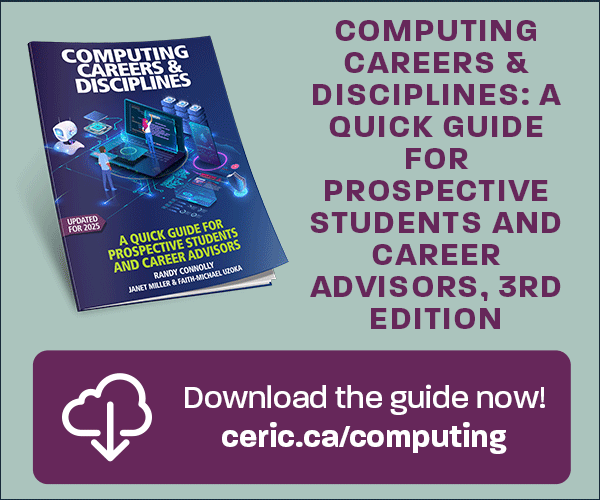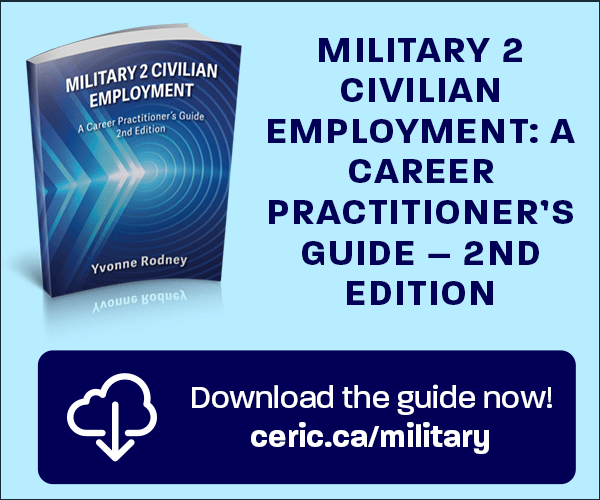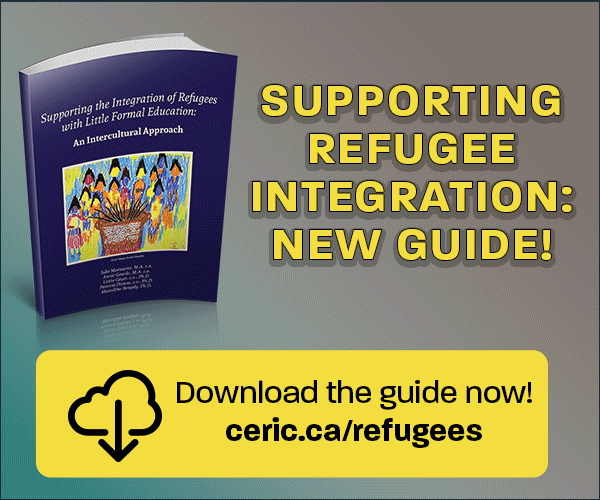Creating a Lifelong Career Development Model
Keywords:
Career, Development Model, Youth, Intervention programsAbstract
A limitation of current theoretical knowledge in youth’s career exploration is the incomplete research regarding how career exploration needs change developmentally and the impact of career interventions over time. Research has often focused on career-related indicators and/or the outcomes of a particular intervention within one developmental time frame. There has been less attention paid to the developmental characteristics of the intervention, the relationship between the intervention and environmental influences, and the linkages between theoretical constructs, differences in developmental stages, and how these may impact the intervention.
References
Ali, S., Brown, S., & Loh, Y. (2017). Project HOPE: Evaluation of health science career education programming for rural Latino and European American youth. Career Development Quarterly, 65, 57-71.
Arnett, J.J. (2004). Emerging adulthood: The winding road from the late teens through the twenties. New York: Oxford University Press.
Bauer, P., & Riphahn, R. (2007). Intergenerational transmission of educational attainment: Evidence from Switzerland on natives and second generation immigrants. Journal of Population Economics 20, 121-148.
Byars-Winston, Angela. (2014). Toward a framework for multicultural STEM-Focused career interventions. Career Development Quarterly, 62, 340.
Chen, C., & Chan, P. (2014). Career guidance for learning-disabled youth. International Journal for Educational and Vocational Guidance, 14, 275-291.
Council of Ministers of Education. (2015). Career decision-making patterns of Canadian youth and associated postsecondary educational outcomes. (Fact sheet (Pan-Canadian Education Indicators Program); no. 10).
Crespo, C., Jose, P., Kielpikowski, M., & Pryor, J. (2013). "On solid ground": Family and school connectedness promotes adolescents' future orientation. Journal of Adolescence, 36, 993-1002.
Crosnoe, R., & Muller, C. (2014). Family socioeconomic status, peers, and the path to college. Social Problems, 61, 602-624.
Dietrich, J., & Kracke, B. (2009). Career-specific behaviors in adolescents’ development. Journal of Vocational Behavior, 75(2), 109-119.
Dietrich, J., Kracke, B., & Nurmi, J. (2011). Parents’ role in adolescents’ decision on a college major: A weekly diary study. Journal of Vocational Behavior, 79(1), 134-144.
Dietsche, P. (2012). Use of campus support services by Ontario college students. The Canadian Journal of Higher Education, 42(3), 65-92.
Douglas, K., & Guttman, M.A. (2000). Women’s stories of parental influence in the career development process of becoming veterinarians. Guidance & Counselling, 16, 18-23.
Felsman, D., & Blustein, D. 1999). The role of peer relatedness in late adolescent career development. Journal of Vocational Behaviour, 54, 279-295.
Finnie, R., & Pavlic, D. (2013). Background characteristics and patterns of access to postsecondary education in Ontario evidence from longitudinal tax data (DesLibris. Documents collection). Toronto, Ont.: Higher Education Quality Council of Ontario.
Germeijs, V., & Verschueren, K. (2009). Adolescents’ career decision-making process: Related to quality of attachment to parents? Journal of Research on Adolescence 19, 459-483.
Ginzberg, E., Ginsberg, S., Axelrad, S., & Herma, J. (1951) Occupational choice: An approach to a general theory. New York: Columbia University Press.
Glozah, F., & Pevalin, N. (2017). Psychometric properties of the perceived social support from Family and Friends Scale: Data from an adolescent sample in Ghana. Journal of Child and Family Studies, 26, 88-100.
Gottfredson, L.S. (2002). Gottfredson’s theory of circumspections, compromise, and self-creation. In D. Brown & Associates (Eds.), Career choice and development (4th ed.) (pp. 85-148). San Francisco, CA: Jossey-Bass.
Guay, F., Ratelle, C.F., Senecal, C., Larose, S., & Deschnes, A. (2006). Distinguishing developmental from chronic career indecision: Self-efficacy, autonomy, and social support. Journal of Career Assessment, 14, 235-251.
Gysbers, N.C. (1996). Beyond career development – Life career development revisited. In R. Feller & G. Waltz (Eds.). Career transitions in turbulent times: Exploring work, learning and careers (pp. 11-20). Greensboro, NC: ERIC/CASS.
Hartung, P. J. (2013). The lifespan, life-space theory of careers. In S. D. Brown, & R. W. Lent (Eds.) Career development and counseling: Putting theory and research to work (2nd ed.) (pp. 83-113). Hoboken, NJ: John Wiley & Sons.
Hartung, P.J., Porfeli, E.J., & Vondracek, F.W. (2005) Child vocational development: A review and reconsideration. Journal of Vocational Behaviour 66, 385-419.
Helme, S. (2010). Career decision-making: What matters to Indigenous Australians? Australian Journal of Career Development, 19, 67-74.
Hill, N.E. & Tyson, D.F. (2009). Parental involvement in middle school: A meta-analytic assessment of the strategies that promote achievement. Developmental Psychology, 45, 740-763.
Hoffman, J., Hofacker, J. & Goldsmith, C. (1992). How closeness affects parental influence on business college students' career choices. Journal of Career Development, 19(1), 65-73.
Howard, K., Flanagan, S., Castine, E., & Walsh, M. (2015). Perceived influences on the career choices of children and youth: An exploratory study. International Journal for Educational and Vocational Guidance, 15, 99-111.
Hussey, A., Kanjilal, D. & Nathan, A. (2016). Disruption in parental co-habitation and its effects on short-term, medium-term, and long-term outcomes of adolescents. Journal of Family and Economic Issues, 37, 58-74.
Jackson, M., Perolini, C., Fietzer, A., Altschuler, E., Woerner, S., & Hashimoto, N. (2011). Career-related success-learning experiences of academically underachieving urban middle school students. The Counseling Psychologist, 39, 1024-1060.
Keller, B.K. & Whiston, S.C. (2008). The role of parental influences on young adolescents’ career development. Journal of Career Assessment 16, 196-217.
Ketterson, T.U., & Blustein, D.L. (1997). Attachment relationships and the career exploration process. Career Development Quarterly, 46, 167-178.
Kracke, B. (2002). The role of personality, parents and peers in adolescents’ career exploration. Journal of Adolescence, 25, 19-30.
Lease, S., & Dahlbeck, D. (2009). Parental influences, career decision-making attributions, and self-efficacy. Journal of Career Development, 36, 95-113.
Lefmann, T. & Combs-Orme, T. (2014). Prenatal stress, poverty, and child outcomes. Child and Adolescent Social Work Journal, 31, 577-590. doi:10.1007/s10560-014-0340-x
Levine, K.A. & Sutherland, D. (2013). History repeats itself: Parental involvement in children's career exploration. Canadian Journal of Counselling and Psychotherapy,47, 239-255.
Marshall, S., Young, R., Domene, J. & Zaidman-Zait, A. (2008). Adolescent possible selves as jointly constructed in parent-adolescent career conversations and related activities. Identity, 8, 185-204.
McIlveen, P., Morgan, T., & Bimrose, J. (2012). A longitudinal study of the experience of a career development program for rural school students. Australian Journal of Career Development, 21, 22-30.
McMahon, M. & Watson, M. (2008). Career psychology research challenges: A systems theory response. South African Journal of Psychology, 39, 184-194.
Medvide, M., & Blustein, D. (2010). Exploring the educational and career plans of urban minority students in a dual enrollment program. Journal of Career Development, 37, 541-558.
Middleton, E. B. & Loughead, T. A. (1993). Parental influence on career development: an integrative framework for adolescent career counseling. Journal of Career Development, 19, 161-73.
Morton, M., & Pollock, N. (2017). Reconciling community-based Indigenous research and academic practices: Knowing principles is not always enough. Social Science & Medicine, 172, 28-36.
Nguyen, M. (2011). Closing the education gap: A case for Aboriginal early childhood education in Canada, a look at the Aboriginal Headstart program. Canadian Journal of Education, 34, 229-248.
Nota, L., Santilli, S., & Soresi, S. 2016). A life‐design‐based online career intervention for early adolescents: description and initial analysis. Career Development Quarterly, 64, 4-19.
Parkin, A. (2009). In Baldwin N., Canada Millennium Scholarship Foundation and Canadian Electronic Library (Firm) (Eds.), Persistence in post-secondary education in Canada the latest research. Montréal, Québec]: Montréal, Québec : Canada Millennium Scholarship Foundation.
Prescod, D., & Daire, A. (2013). Career intervention considerations for unwed young black mothers in the United States. Adultspan Journal, 12, 91-99.
Reynolds, R. & Harel-Caperton, I. (2011). Contrasts in student engagement, meaning-making, dislikes, and challenges in a discovery-based program of game design learning. Education Technology Research Development, 59, 267–289.
Savickas, M. L. (2005). The theory and practice of career construction. In S. D. Brown & R. W. Lent (Eds.), Career Development and Counseling: Putting Theory and Research to Work, (pp. 42-70). Hoboken, NJ: John Wiley & Sons.
Savickas, M. L. & Super, D. E. (1993). Can life stages and substages be identified in students? Man and Work: Journal of Labor Studies. 4, 71-78.
Schultheiss, D. P., & Blustein, D. L. (1994). Contributions of family relationship factors to the identity formation process. Journal of Counseling & Development, 73, 159-166.
Schultheiss, D. P., Kress, H. M., Manzi, A. J., & Glasscock, J. M. (2001). Relational influences in career development: A qualitative inquiry. The Counselling Psychologist, 29, 214-239.
Schultheiss, D. P., Palma, T., & Manzi, A. (2005). Career development in middle childhood: A qualitative inquiry. The Career Development Quarterly, 53, 246-262.
Schultheiss, D. P. & Stead, G.B. (2004). Childhood career development scale: Scale construction and psychometric properties. Journal of Career Development 12, 113-124. doi: 10.1177/1069072703257751
Sheftel, A., Lindstrom, L., & McWhirter, B. (2014). Motivational enhancement career intervention for youth with disabilities. Advances in School Mental Health Promotion, 7, 208-224.
Staff, J., Harris, A., Sabates, R. & Briddell, L. (2010). Uncertainty in early occupational aspirations: Role exploration or aimlessness? Social Forces, 89, 659-683.
Statistics Canada (2015). 2011 Census of Canada topic based tabulations, immigration and citizenship tables: Immigrant status and place of birth of respondent, sex, and age groups, for population, for census metropolitan areas, (Catalogue number 99-010-X2011001).
Super, D.E. (1953). A theory of vocational development. American Psychologist, 8, 185-190.
Super, D. E., Osborne, W. L., Walsh, D. J., Brown, S. D. & Niles, S. G. (1992). Developmental career assessment and counselling: The C-DAC model. Journal of Counselling & Development, 71, 74-80.
Super, D. (1980). A life-span, life-space, approach to career development. Journal of Vocational Behaviour, 16, 282-298.
Super, D.E. (1990). A life-span, life-space approach to career development. In D. Brown, L. Brooks & Associates (Eds.), Career Choice and development (2nd ed.)(pp. 197-261). San Francisco, CA: Josey-Bass.
Texas Christian University Prevention Intervention Management and Evaluation System TCU/PMES). Retrieved from http://ibr.tcu.edu/wp-content/uploads/2013/06/ffs-cd-95.pdf
Turner, S., & Conkel, J. (2010). Evaluation of a career development skills intervention with adolescents living in an inner city. Journal of Counselling & Development, 88, 457-465.
Turner, S., Ziebell, J., & Conkel, L. (2011). The career beliefs of inner-city adolescents. Professional School Counselling, 1, 1-14.
Usinger, J. & Smith, M. (2010). Career development in the context of self-construction during adolescence. Journal of Vocational Behaviour, 76, 580-591.
Wang, M., Hill, N. E. & Hofkens, T. (2014). Parental involvement and African American and European American adolescents' academic, behavioral, and emotional development in secondary school. (Clinical report). Child Development, 85, 2151.
Whiston, S. & Keller, B. (2004). The influences of the family of origin on career development: A review and analysis. The Counselling Psychologist, 32, 493-568.

Downloads
Published
How to Cite
Issue
Section
License
Copyright (c) 2020 Canadian Journal of Career Development

This work is licensed under a Creative Commons Attribution-NonCommercial-NoDerivatives 4.0 International License.
















